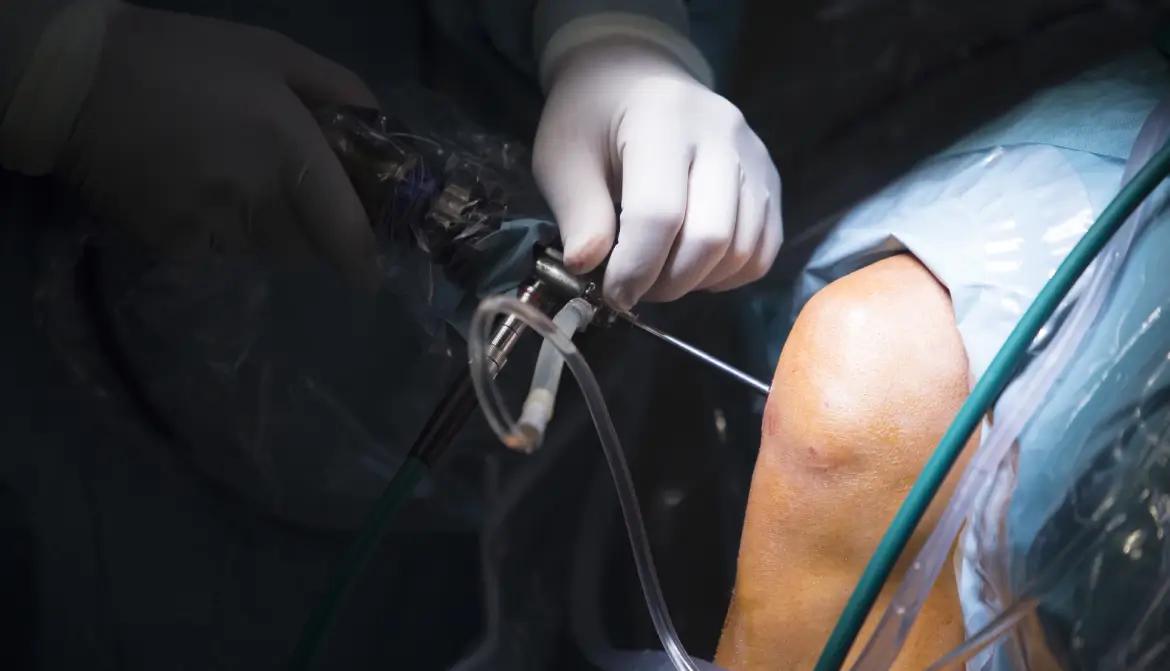
5 Symptoms That Indicate It’s Time for Knee Replacement Surgery
Knee pain can be an everyday challenge — limiting your movement, affecting your mood, and disrupting your daily life. While medications, physiotherapy, and lifestyle changes help many people manage their symptoms, there comes a time when these no longer provide relief. For patients suffering from chronic knee issues, knee replacement surgery might be the most effective solution to reclaim their quality of life.
But how do you know when it’s time? Let’s explore 5 key symptoms that may indicate it's time to consult an orthopaedic specialist like Dr. Deven R Kuruwa to discuss knee replacement surgery.
1. Severe and Persistent Knee Pain
One of the earliest and most consistent signs that your knee may need surgical intervention is chronic pain. This pain may be:
- Constant, even when at rest
- Felt deep inside the joint
- Triggered by everyday movements like walking, climbing stairs, or getting in and out of chairs
- Disruptive to your sleep
If you’re taking painkillers regularly or avoiding physical activity due to knee discomfort, it’s time to get evaluated. At Dr. Deven R Kuruwa’s orthopaedic centre, we often see patients who have tolerated knee pain for years. But when the pain starts affecting your quality of life daily, surgery may be the best path forward.
2. Reduced Range of Motion
Knees are designed to bend and extend freely, enabling us to walk, run, sit, and squat. If your knee has become stiff, and you notice:
- Difficulty straightening or bending the leg
- Trouble standing up from a seated position
- A feeling of “grinding” or “locking” in the knee
These are red flags. Limited range of motion is typically due to worn cartilage and bone spurs that develop in conditions like osteoarthritis. Dr. Deven R Kuruwa emphasizes that early physiotherapy and medical management can slow down joint damage, but if stiffness becomes disabling, surgery becomes necessary to restore mobility.
3. Swelling and Inflammation That Doesn’t Subside
It’s normal to experience occasional swelling after intense physical activity or injury. However, if your knee is:
- Frequently swollen
- Tender to touch
- Red or warm
- Resistant to rest, ice, or anti-inflammatory medications
It may suggest advanced joint damage. Inflammatory arthritis, bone-on-bone friction, and joint degeneration can all contribute to persistent swelling. Surgical intervention such as total knee replacement helps eliminate the diseased surfaces of the joint and reduces inflammation significantly.
4. Lifestyle Limitations and Loss of Independence
Perhaps the most compelling reason to consider knee replacement is when knee problems begin interfering with your ability to live life independently. You might experience:
- Difficulty walking more than a few steps
- Inability to perform chores or hobbies
- Avoidance of social outings
- Reliance on walking aids like canes or walkers
If you find yourself planning your day around knee pain or avoiding activities you once loved, that’s a major quality-of-life concern. Dr. Deven R Kuruwa often tells patients: “When your joint starts controlling your life instead of you controlling it—that’s when surgery should be on the table.”
5. No Relief from Non-Surgical Treatments
Most patients begin with conservative treatments like medications, injections, physiotherapy, weight loss, and assistive devices. But over time, the effectiveness of these measures can diminish. If you’ve tried these and your symptoms persist—or even worsen—it may be a sign that your knee condition has progressed beyond repair.
Understanding the Knee Replacement Procedure
Knee replacement surgery involves removing damaged cartilage and bone from the knee joint and replacing it with artificial components. Types of knee replacement include:
- Total Knee Replacement (TKR)
- Partial Knee Replacement
- Revision Knee Replacement
- Robotic-Assisted Knee Surgery
Recovery typically involves physiotherapy and takes 6–12 weeks for most patients to resume normal activities. Many people return to walking without support, performing daily tasks, and even enjoying low-impact sports.
Final Thoughts
Knee pain isn’t just a symptom—it’s a signal. If you’ve identified with any of the five symptoms discussed above—persistent pain, stiffness, swelling, functional limitations, or failed conservative treatment—it’s time to take the next step. Under the expert care of Dr. Deven R Kuruwa, you’re in trusted hands every step of the way.